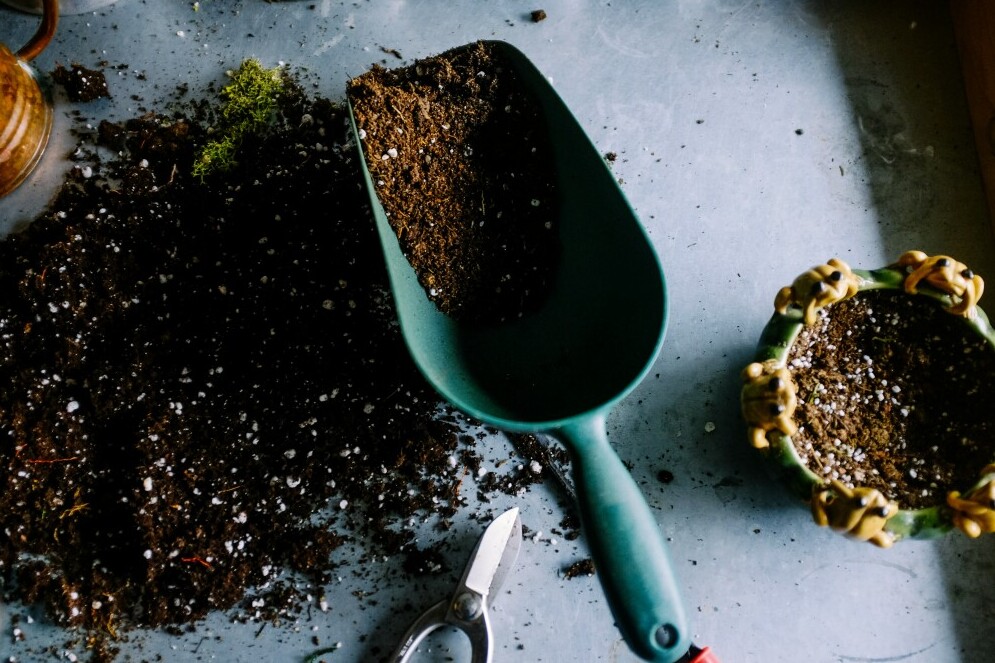Most of us start our day with a cup of coffee, but did you know those used coffee grounds can be repurposed in eco-friendly ways? Instead of tossing them in the trash, you can use them to enrich your garden, clean your home, and even combat odors. However, not all plants benefit from coffee grounds, so it’s essential to use them wisely. Let’s explore the dos and don’ts of using coffee grounds, along with creative ways to repurpose them!

Plants That Don’t Like Coffee Grounds
While coffee grounds can be beneficial, some plants are sensitive to acidity or nitrogen overload. Here are some plants that do not respond well to coffee grounds:
- Plants that prefer alkaline or neutral soil: Lavender, rosemary, lilacs, and clematis.
- Root vegetables sensitive to acidic soil: Carrots, beets, and turnips.
- Plants that don’t tolerate excess nitrogen: Tomatoes and asparagus.
- Plants needing loose, well-aerated soil: Succulents, cacti, and orchids.
To prevent issues, it’s best to compost coffee grounds before adding them to your garden or use them in moderation.
10 Eco-Friendly Ways to Repurpose Coffee Grounds
1. Natural Fertilizer
Coffee grounds are packed with essential nutrients like nitrogen, potassium, and phosphorus, which are crucial for plant growth and health. Research shows that nitrogen, a primary component in coffee grounds, plays a vital role in chlorophyll production, enhancing photosynthesis efficiency. These tiny granules break down over time, releasing nutrients slowly, making them a natural fertilizer that keeps on giving. They can also be sprinkled around acid-loving plants like blueberries and hydrangeas.
2. Improving Soil Structure & Aeration
Using coffee grounds in the soil can do wonders for its structure and drainage. Studies indicate that organic matter like coffee grounds can improve soil porosity, enhancing water retention and root penetration. They help to break up heavy soils, making it easier for roots to spread and take hold. Thanks to the grounds’ ability to create tiny air pockets, you get better aeration, meaning roots have access to the air they need.
3. Attracting Earthworms
Earthworms are known to thrive in environments rich in organic matter. Research confirms that incorporating coffee grounds into soil increases earthworm activity, leading to better soil aeration and nutrient cycling. These little helpers love munching on decomposing coffee grounds, improving soil quality further.
4. Mulching
Coffee grounds make excellent mulch material, capable of retaining moisture, suppressing weeds, and adding nutrients as they decompose. However, studies caution that applying coffee grounds too thickly can create water-resistant layers. Spread a thin layer around your plants for optimal results.
5. Compost Booster
Adding coffee grounds to compost helps balance green and brown materials, ensuring proper microbial decomposition. The U.S. Environmental Protection Agency (EPA) recognizes coffee grounds as a valuable compost ingredient that accelerates organic material breakdown and enriches compost quality.
6. Pest Repellent
Studies suggest that coffee grounds contain natural compounds like caffeine and diterpenes, which can repel certain pests such as slugs, snails, and ants. Sprinkling coffee grounds around plants provides a chemical-free way to deter unwanted garden invaders.
7. Odor Absorber
Dried coffee grounds effectively neutralize odors by absorbing and trapping unwanted smells. Scientific evidence supports their use in refrigerators, garbage cans, and shoes to maintain freshness.
8. Natural Scrub & Cleaning Agent
Due to their abrasive texture, coffee grounds can be used as a natural scrub for cleaning surfaces like pots and pans. Some studies highlight the antimicrobial properties of coffee extracts, making them useful in hygiene applications.
9. Flea & Pet Odor Control
While anecdotal evidence suggests that coffee grounds may help repel fleas, veterinarians recommend caution, as caffeine can be toxic to pets if ingested. It is best to consult a professional before using coffee grounds on animals.
10. Growing Mushrooms
Used coffee grounds serve as a nutrient-rich medium for growing oyster mushrooms at home. Research confirms that coffee grounds provide a sustainable substrate, reducing waste while enhancing mushroom yield.
Cautions and Considerations: Best Practices for Coffee Grounds Usage
While coffee grounds can be beneficial, moderation is key. Over-applying can cause acidity issues, potentially harming plants that prefer neutral or alkaline soils. Studies indicate that excessive coffee ground usage may compact the soil rather than improve it, restricting water infiltration and root development.
Certain plants, like carrots and radishes, may be sensitive to the acidity of coffee grounds. Experts suggest mixing coffee grounds with other compost materials to balance pH levels before application.
Additionally, avoid using flavored or sweetened coffee grounds, as they may contain additives and artificial chemicals that can negatively impact soil health. Always opt for simple, used coffee grounds for the most natural and effective results.
Conclusion
By reusing coffee grounds, you can reduce waste while benefiting your garden, home, and even your pets. Scientific research supports many of the advantages of coffee grounds, from improving soil quality to deterring pests. Whether you’re composting, enhancing soil aeration, or freshening up your space, these eco-friendly tips will ensure you get the most out of your morning brew. Start saving those coffee grounds and give them a second life today!

It’s intriguing to think how something as ordinary as your morning coffee can be transformed into a tool for nurturing life. The article’s detailed look at repurposing coffee grounds—whether as a natural fertilizer, a means to improve soil structure, or even as a gentle pest deterrent—reminds us that sustainability is often hidden in plain sight. It challenges us to see waste not as a byproduct to discard, but as a resource that, when used thoughtfully, can foster growth in unexpected ways. The careful caution against overuse and the need to respect each plant’s unique requirements also serve as a metaphor: even the best intentions need balance and precision. It makes you wonder what other everyday remnants might be repurposed, quietly weaving resilience into our environment, one small act at a time. All the same, I would say Great job !
Thank you. Coffee grounds are just one of many that can be used to improve your soil and plants.